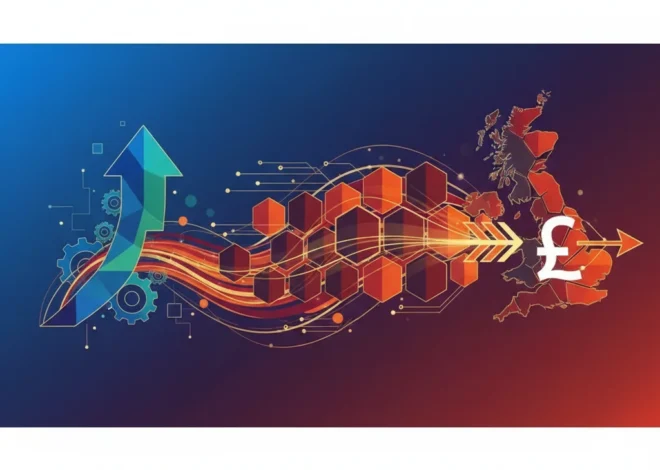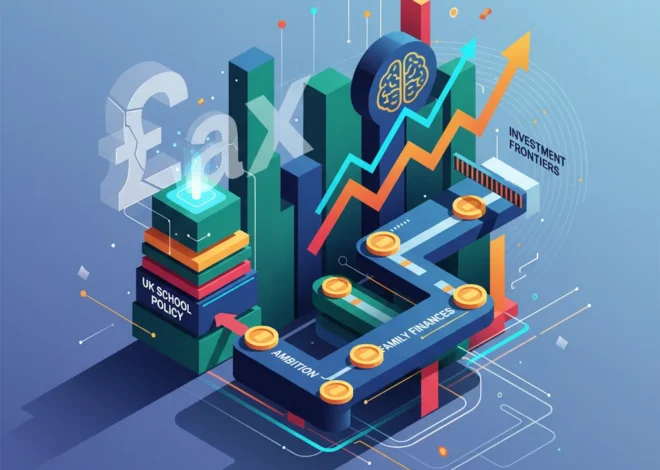
Argentina’s High-Stakes Bet: Milei’s Election Win Greenlights Radical Economic “Shock Therapy”
In a political and economic drama captivating global markets, Argentina has just handed its new free-market president, Javier Milei, a resounding vote of confidence. A significant victory in the recent midterm elections has provided a crucial endorsement for his radical, high-risk “shock therapy” reforms, signaling a potential turning point for the nation’s perpetually troubled economy. For investors, business leaders, and students of economics, this development is more than just a local political event; it’s a live-fire test of libertarian principles against the harsh realities of hyperinflation and entrenched statism.
President Milei, a self-described “anarcho-capitalist” who famously campaigned with a chainsaw to symbolize his intent to slash state spending, inherited an economic catastrophe. With annual inflation soaring past 250%, depleted foreign reserves, and a labyrinth of capital controls, the country was on the brink of collapse. His victory now provides the political capital needed to push his aggressive legislative agenda through a historically complex and often gridlocked Congress. This win comes after weeks of intense volatility in Argentina’s financial markets, where investor sentiment oscillated wildly between hope for reform and fear of political failure.
The Mandate for a Market Revolution
The election results are a clear signal that a significant portion of the Argentine populace, weary of decades of economic mismanagement under Peronist governments, is willing to endure short-term pain for the promise of long-term stability. This mandate is critical, as Milei’s proposals are anything but conventional. They represent a fundamental dismantling of the state-led economic model that has dominated Argentina for generations. The success of this endeavor could rewrite the playbook for emerging market turnarounds, while its failure could plunge the nation into even deeper social and economic chaos.
The core of Milei’s plan, often referred to as the “chainsaw plan,” involves a multi-pronged assault on the fiscal deficit, which he views as the primary driver of inflation. This isn’t just about trimming budgets; it’s about re-engineering the relationship between the state, the market, and the individual. Below is a breakdown of the key pillars of his proposed reforms.
To better understand the scope of these changes, let’s examine the central components of Milei’s economic agenda:
| Reform Pillar | Key Actions | Intended Economic Impact |
|---|---|---|
| Fiscal Consolidation (“Chainsaw Plan”) | Drastic cuts to public spending, elimination of government ministries, reduction of subsidies for energy and transport. | Achieve a fiscal surplus to eliminate the need for inflationary money printing by the central banking authority. |
| Privatization & Deregulation | Sale of state-owned enterprises (e.g., airline Aerolíneas Argentinas, energy company YPF), and removal of price controls and market restrictions. | Increase efficiency, attract foreign investing, and foster competition to lower consumer prices over time. |
| Monetary & Currency Reform | Devaluation of the peso to a more realistic exchange rate, eventual closure of the central bank, and potential future dollarization. | Stabilize the currency, crush hyperinflation, and restore confidence in the financial system. |
| Labor Market Liberalization | Reforms to make hiring and firing easier, aiming to reduce the power of unions and encourage formal employment. | Boost private sector job creation and reduce the size of the informal economy. |
Market Reaction: Cautious Optimism in the Face of Extreme Volatility
The immediate reaction on the stock market has been cautiously optimistic. Argentine sovereign bonds, which had been trading at deeply distressed levels, saw a significant rally following the news (source). The Merval index, Buenos Aires’ main stock exchange, also reflected positive sentiment. For traders and investors, the election victory reduces a key variable: political risk. It suggests that Milei may now have the legislative support to pass his omnibus reform bill, a cornerstone of his economic stabilization plan.
However, this is far from a one-way bet. The path ahead is fraught with peril. The initial phases of “shock therapy” are typically recessionary, leading to job losses and a sharp decline in purchasing power before any benefits materialize. This “J-curve” effect—where things get worse before they get better—will test the patience of the Argentine people and the resolve of the political establishment. Any sign of wavering could send markets tumbling once again.
A New Frontier for Fintech and Blockchain?
Beyond the traditional metrics of finance and economics, Milei’s victory could have profound implications for the burgeoning world of financial technology. Argentina, out of necessity, has become a global hotspot for cryptocurrency and fintech adoption. Decades of currency devaluation and capital controls have driven citizens to seek refuge in assets like Bitcoin and stablecoins. Milei himself has spoken favorably about Bitcoin, viewing it as the “return of money to its original creator: the private sector.”
A deregulated, pro-market environment could unleash a wave of innovation. If capital controls are lifted and the economy stabilizes, Argentina could become a prime destination for blockchain development and fintech investment. A government that is ideologically open to private-sector monetary solutions could create a regulatory sandbox unlike any other in the world. This presents a unique, albeit speculative, opportunity for investors focused on the intersection of technology and finance, as a successful turnaround could see Argentine tech firms become major players in the global digital economy.
The Ghost in the Machine: Why a 40-Year-Old Warning About China Still Dominates Global Finance
The Long and Winding Road Ahead
Despite the electoral tailwind, President Milei faces a monumental task. As one analyst noted, “the government has won a major battle, but the war against inflation and economic stagnation is far from over” (source). The structural impediments are immense: a powerful judiciary, provincial governors with their own political interests, and a society deeply divided after years of economic hardship.
The international community, including the International Monetary Fund (IMF)—Argentina’s largest creditor—is watching closely. While the IMF is broadly supportive of Milei’s fiscal discipline goals, it remains concerned about the social impact of such rapid and deep cuts. Securing ongoing support from the IMF and other international creditors is essential for rebuilding the country’s foreign reserves and restoring its credibility in global capital markets.
The "Dodgy Gas Fitter" Fallacy: Why Systemic Risk is the Biggest Threat You're Not Tracking
In conclusion, Javier Milei’s midterm victory is a pivotal moment in Argentina’s modern history. It provides a fragile but tangible mandate to pursue one of the most ambitious economic liberalization programs ever attempted. For the global investment community, Argentina has transformed from a basket case to a high-stakes laboratory for free-market reform. The potential rewards are matched only by the substantial risks. The world is now watching to see if the chainsaw can clear a path to prosperity or if it will get bogged down in the dense, thorny thicket of Argentine politics.


